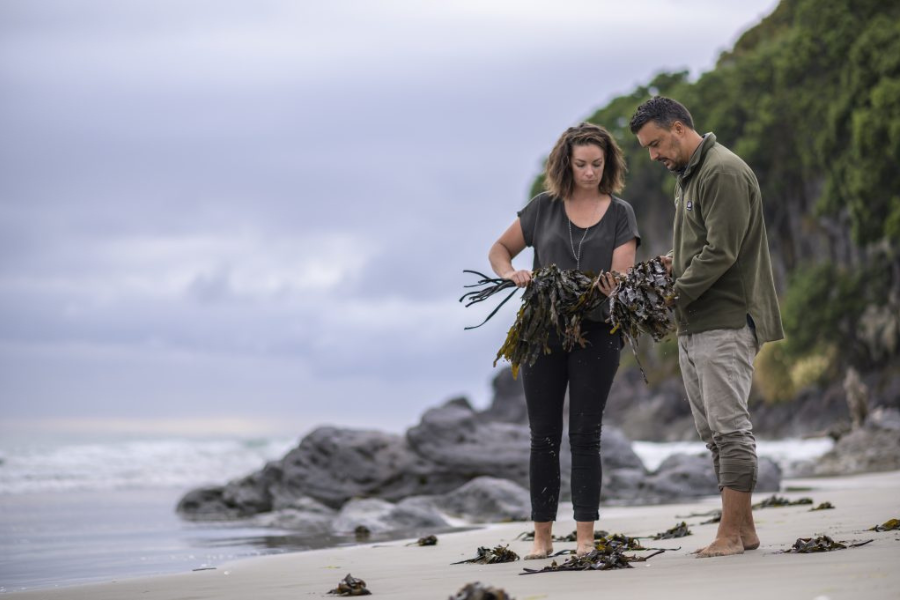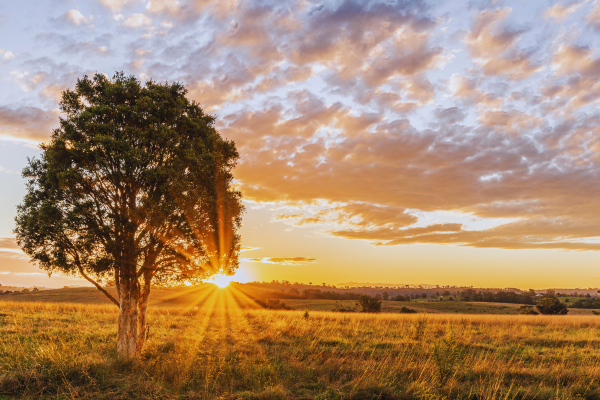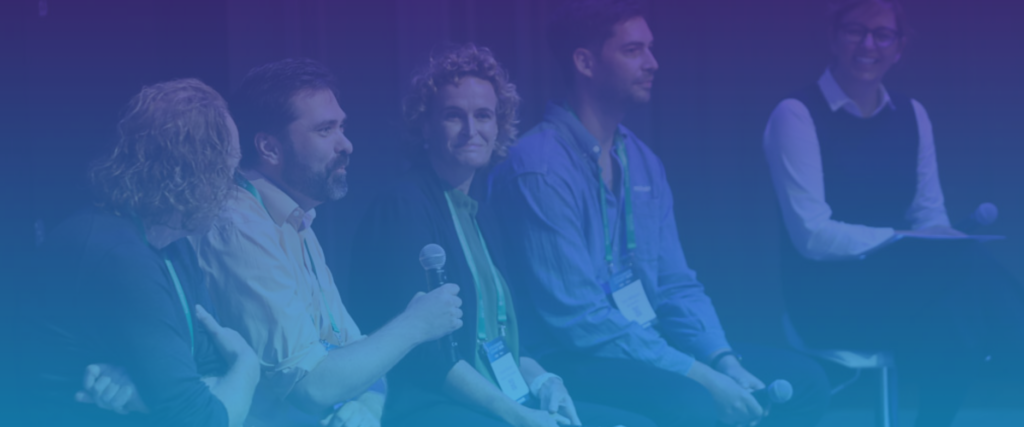Ahead of her keynote presentation at the Life Sciences Summit, Clare Bradley shares AgriSea’s success story.
AgriSea is an award-winning, family-owned seaweed company delivering high value nutrition products for the primary sectors including soil, plant, animal and bee nutrition. Their products are widely used in the dairy, drystock, viticulture, horticulture, and apiculture industries in New Zealand and overseas.
The company’s biostimulant technology and advanced fermentation system is unique in the world and utilises the brown kelp Ecklonia radiata which is native to New Zealand. Hundreds of people in remote coastal areas in the North Island harvest the seaweed for the company’s processing plant in Paeroa in the Hauraki Plains.
“Ecklonia radiata thrives in the warmer North Island waters and we’ve got whānau all along the coast with mātauranga Māori, or local Māori knowledge, collecting seaweed for us,” says Clare Bradley, a Director of AgriSea. “They know the weather, winds and sea conditions that deliver the best seaweed crop. Making sure we’ve got the right people in the right areas with that local knowledge and connection to place is a big part of our success.”
“As a Māori-owned, intergenerational business, we have a different lens on the business than a large corporate might have. That influences our long-term vision. We’re not here to pillage the sea and retire to a bach (holiday home) with a Beemer (BMW) and a boat. Māori values like kaitiakitanga, manaakitanga and whanaungatanga are part of our DNA.”
Kaitiakitanga (which means guardianship for people, place and planet) is a responsibility to look after resources and the environment for future generations. Manaakitanga means to extend aroha (love, compassion and generosity) to others. Finally, whanaungatanga is a foundational value of Māori culture that emphasises the importance of relationships, togetherness and a sense of family connection.
AgriSea is a natural nutritional and soil supplement that is sustainably harvested, something that is increasingly important for farmers and growers around the world who are embracing regenerative agriculture methods — a way of farming that helps reverse the damage done to our water, soil, climate and biodiversity.
“Our values are not a PR exercise for us,” says Bradley. “They’re part of who we are. We feel it is our responsibility to look after our natural resources for future generations.”
AgriSea is proud to call itself a family-owned business. Jill Bradley and her husband Keith Atwood first heard about the nutritional benefits of seaweed in the mid-1990s when they were keen amateur gardeners. They started harvesting seaweed and brewing all these weird and wonderful concoctions for their home garden.
Local gardeners soon discovered their secret (seaweed) sauce and so Jill and Keith started selling it. They sent a batch to the famous rosarian, Allan Scott, that he credited with saving a rare rose at Morrinsville Church. An apple grower in Hawkes Bay rang looking for two 200-litre drums and sent a big truck to their quiet suburban street in South Auckland.
Jill and Keith realised they were onto something, so they quit their jobs as school teachers, sold their house and set up shop in an old butter factory in Paeroa. They were attracted by the cheap rent and the proximity to the orchard growing regions in the Hawkes Bay and Bay of Plenty but the location also gave them easy access to dairy farmers in the Waikato. Very quickly, the dairy industry became their biggest market.
The downturn in the dairy industry in 2015 turned out to be a happy accident for AgriSea. Forced to consider other markets for their products they talked to a number of beekeepers who had been buying their products for years.
“Previously, we compared the size of a bee to the size of a dairy cow and we weren’t convinced that apiculture was a sector worth investing our time and energy into,” says Clare. “But the beekeepers told us that when they fed it to their bees, they had healthy, happy hives.”
Research proved that the bioactives in seaweed help treat a gut parasite prevalent in bees. Now apiculture is a big part of AgriSea’s business and they export their product to beekeepers in the US, Canada and Australia.
While building a successful global business is a goal for AgriSea, they’re also committed to building a sustainable business with a strong emphasis on R&D to come up with global solutions to the economic and environmental challenges in agriculture. The company recently partnered with a US company on a pilot seaweed farm project in Auckland’s Hauraki Gulf. Seaweed farming has a number of environmental benefits including removing carbon emissions from the atmosphere and helping to improve water quality by absorbing contaminants.
“It’s one of the things that gets me out of bed every day,” says Bradley. “I want to be able to look my children in the face and feel confident that I’m doing my best to make a better future for them and the generations to come.”
As well as the regenerative seaweed farming project, Bradley says AgriSea is committed to changing how Kiwi dairy farmers think about the soil.
“We’re in the middle of this revolution in terms of our understanding of the role of soil microbiology. The soil is the equivalent of the gut of the planet and we need good, healthy microbes in the soil. AgriSea is like a probiotic for the soil and farmers who use our product are able to reduce the amount of fertiliser they use. It requires a shift in mindset and an understanding that a healthy functioning soil ecosystem creates healthy plants, healthy animals and healthy profits. We’re not just selling a product; it’s an education process.”
Special thanks to our friends at AgriTechNZ, where this story first appeared. Read more stories like this, including the future of farming, going global and growing great agritech businesses.
Would you like to know more about how new tech can help solve some of our biggest global challenges? Attend the inaugural Life Sciences Summit 2023 – biotech for a better tomorrow. Join us 22-23 March in Wellington and learn more.



